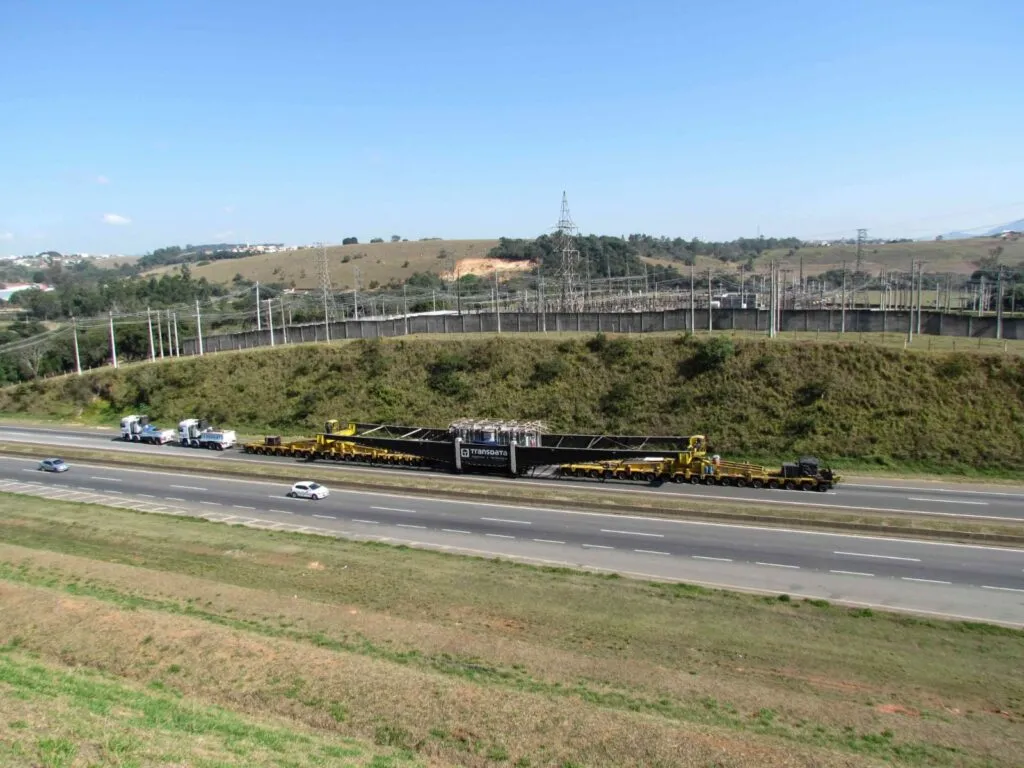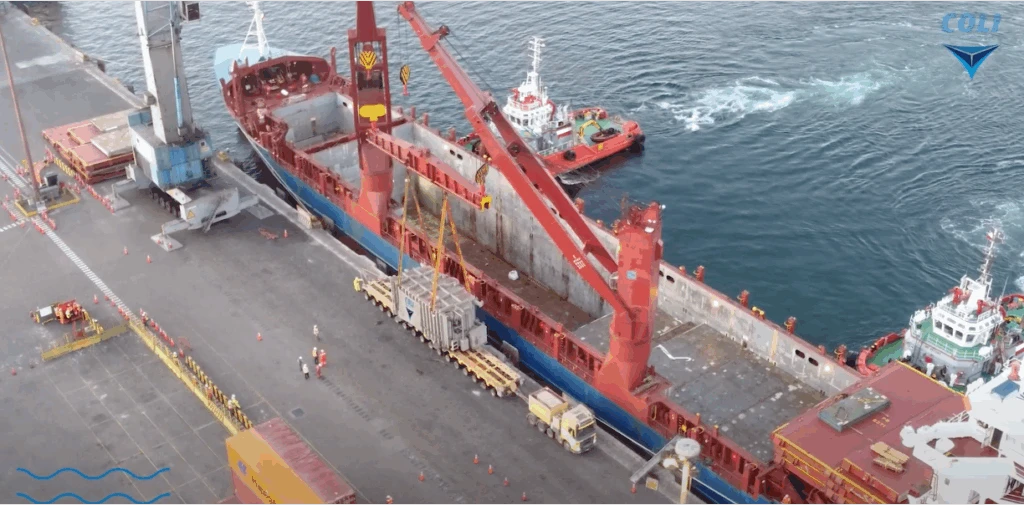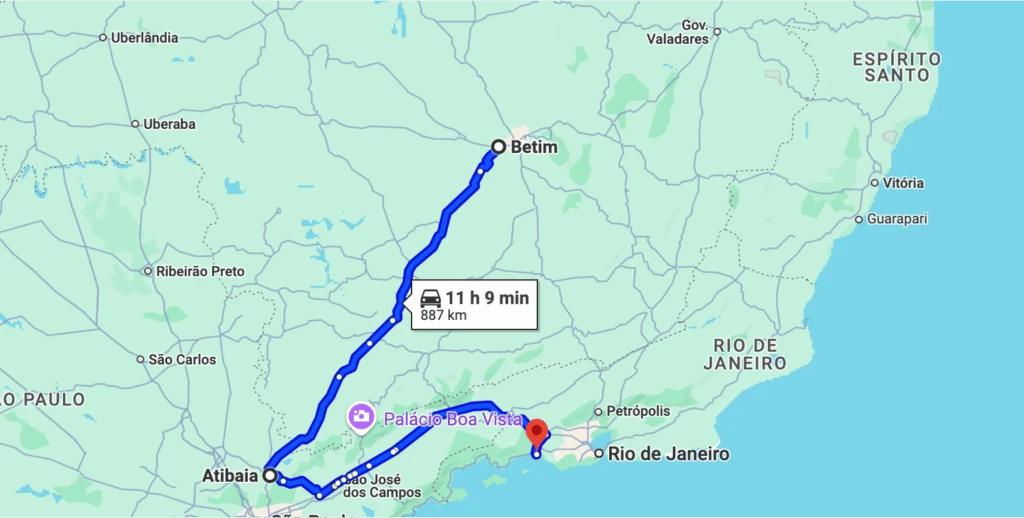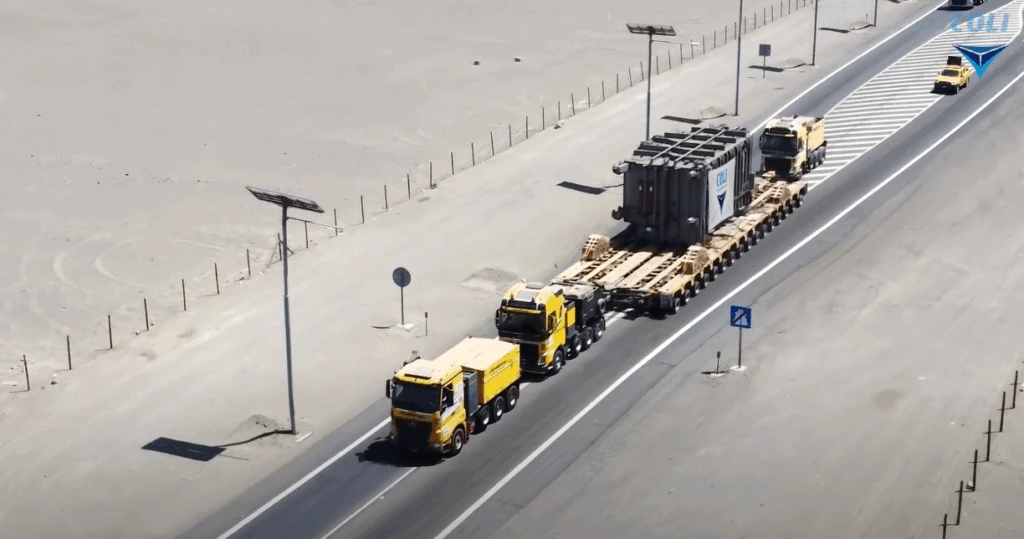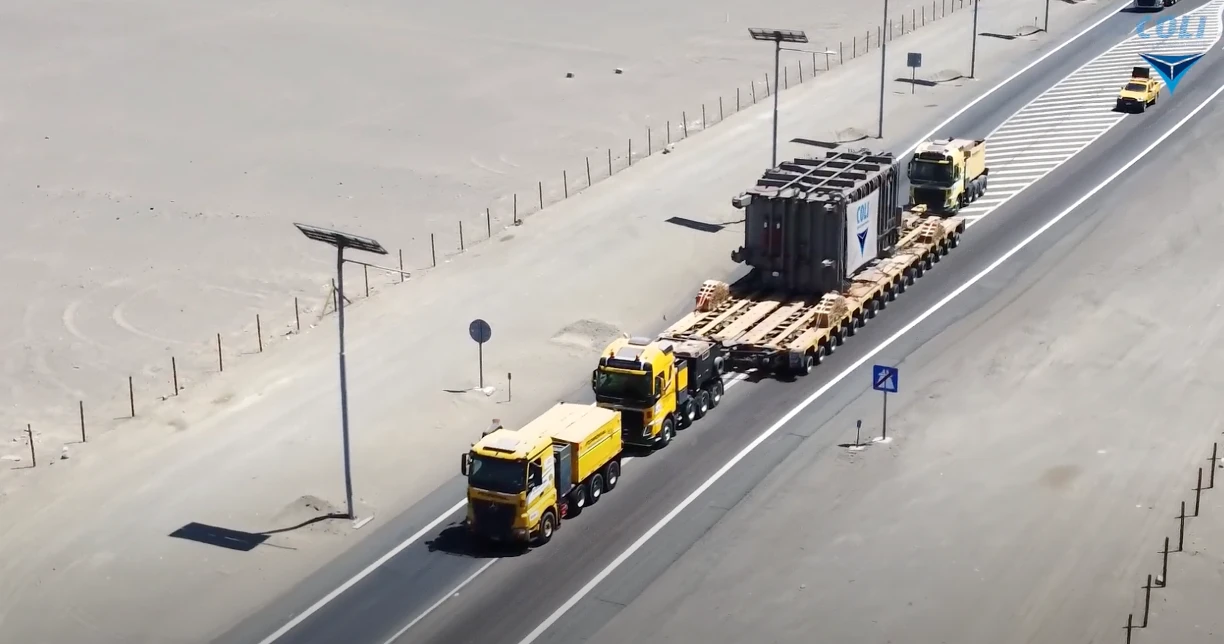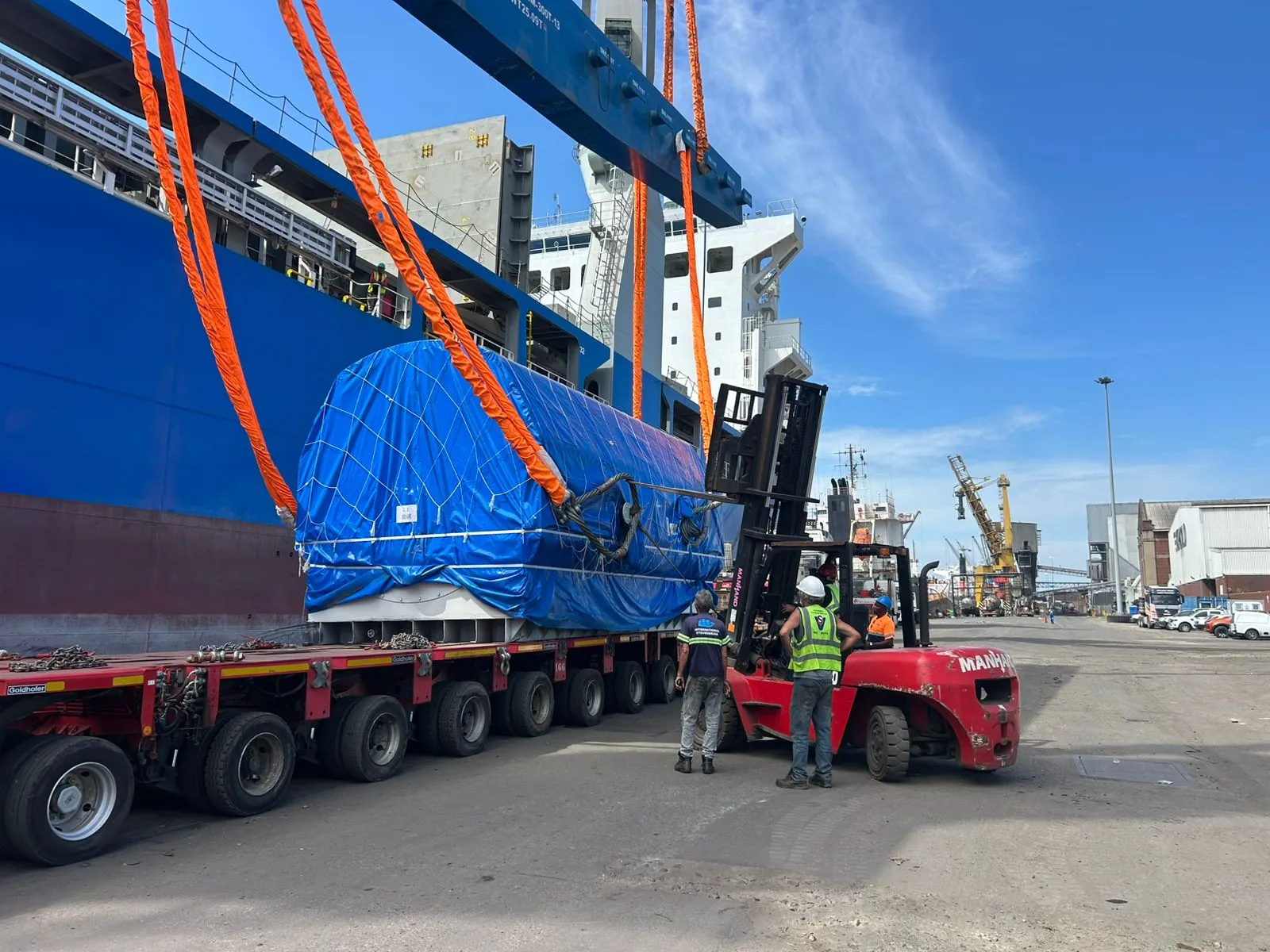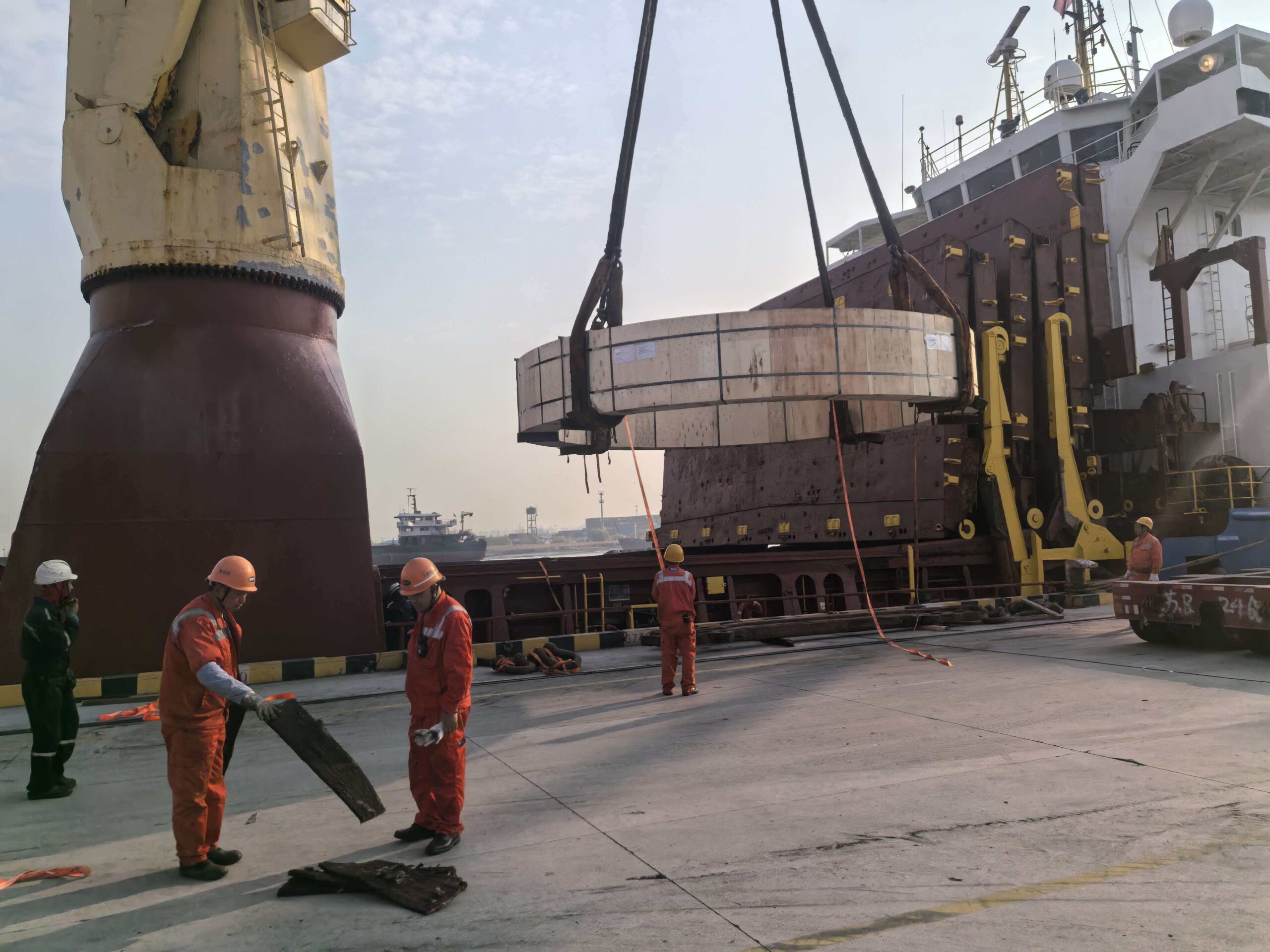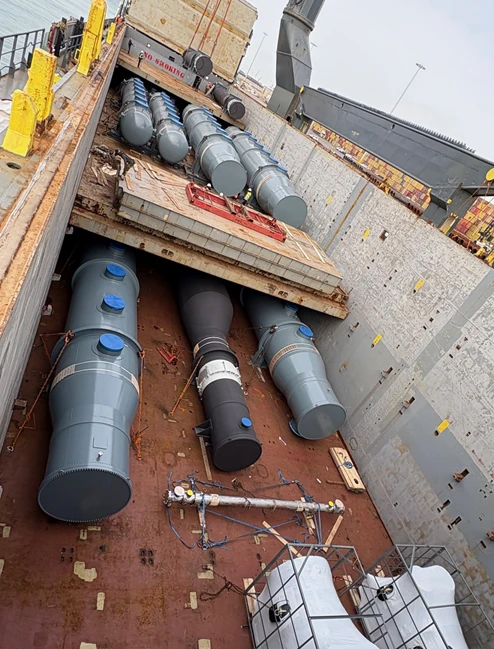Moving a 280-ton cargo across thousands of kilometers, crossing borders, overcoming uneven terrain, narrow highways, and ports with limited access is not just a logistical challenge it’s a true feat of engineering and planning. That’s exactly what COLI Shipping accomplished by transporting a massive transformer from Betim (MG), Brazil, to a power plant in the Antofagasta region in northern Chile. A journey lasting nearly 70 days required technical precision, international coordination, and decision-making under pressure.
It all began at the factory in Minas Gerais, where the transformer exceeding conventional weight and size standards was prepared for a long and complex overland journey to the coast of Rio de Janeiro. To handle the asymmetrical center of gravity and the extreme weight of the equipment, a special beam with 36 axles, 18 on each side, was used. The beam was widened to 7.5 meters to ensure stability and safety throughout the journey on Brazilian roads.
Even before the cargo left the factory, the exporter faced a critical challenge: difficulty obtaining the required oversized cargo transport permits on time. Recognizing the urgency, COLI Shipping took an active role in the process, coordinating all documentation on an emergency basis, including the issuance of the EVE (Structural Feasibility Study) and EVG (Geometric Feasibility Study) documents. Through technical expertise and engagement with the relevant authorities, COLI secured the necessary permits in just 30 days an exceptionally short timeframe for an operation of this magnitude.
The overland stage lasted 42 days and mobilized a true logistical task force. Led by COLI Shipping, federal and state permits were obtained, specialized escorts were organized, and urban interventions were carried out including lifting overhead cables and modifying signage. Every kilometer covered reaffirmed the importance of meticulous technical planning.
Upon arrival at the Port of Itaguaí (RJ), another obstacle emerged: the transport setup was too large to directly access the port. The solution was to disassemble the beam in the yard of the Sepetiba Tecon terminal. The transformer was then relocated onto a separate axle line and transported to the ship’s side, where the maritime leg of the journey to the Pacific would begin.
However, an unexpected setback nearly compromised the schedule: the vessel originally designated for the operation faced last-minute operational issues and could not call at the port for loading. With tight deadlines and the risk of direct impacts to both the exporter’s and importer’s plans, COLI Shipping acted swiftly and precisely. In record time, the company arranged a substitute vessel with compatible technical capabilities, ensuring the loading proceeded without any delay. Even in the face of this critical change, the logistical timeline was fully preserved.
Just as things seemed back on track, another issue arose. Due to a spike in port congestion at the Sepetiba terminal, there was a real risk of delays in the vessel’s berthing and, consequently, in continuing the operation. However, thanks to COLI Shipping’s strong partnership with the terminal, berthing priority was secured. The coordination team worked quickly to adjust operational windows and ensure the transformer was loaded on schedule.
The efficiency in overcoming this bottleneck underscores the importance of strategic relationships and direct communication among links in the logistics chain. Instead of delays, the operation proceeded as planned, adhering to the international schedule and avoiding impacts to the end customer.
The equipment was loaded onto a break bulk vessel specifically designed for indivisible and heavy cargo. The loading operation, carried out using onboard cranes, followed a stowage plan meticulously prepared by COLI’s technical team, taking into account factors like center of gravity and safety at sea.
After 15 days of navigation including passage through the Strait of Magellan—the ship docked at the Port of Angamos, Chile. The third and final stage of the operation began there. The Chilean overland leg was carried out using a 14-axle-per-line configuration, custom-built to navigate the region’s rugged terrain.
But the greatest challenge was still ahead…
Near the power plant, the rough terrain and extremely tight curves made the final access impossible with the original equipment. Once again, COLI Shipping responded with technical precision: the transformer was transferred onto SPMTs (Self-Propelled Modular Transporters), modular self-propelled vehicles ideal for maneuvering in confined spaces.
This delicate transfer operation took two days of intense work, adding to the five-day Chilean overland segment. In total, the operation lasted approximately 70 days a feat that involved dozens of professionals, countless steps, and international synergy between Brazil and Chile.
At the end of this journey, the transformer arrived intact and on time. More than just transporting an oversized load, the operation was a demonstration of how heavy logistics can be executed with excellence when there is technical planning, creativity, and commitment to overcoming challenges and unforeseen events.
The journey from Betim to Antofagasta was more than a delivery it was a showcase of logistics solutions that go beyond the ordinary.
